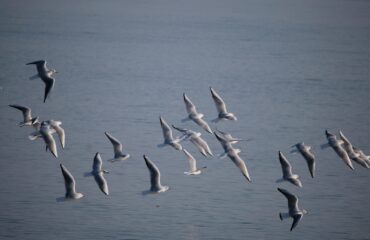If you think of the Earth as a gigantic spaceship and think of the oceans as its largest renewable source of oxygen – responsible for generating 70 percent of the amount in our atmosphere – you’ll have an idea of just how much our lives depend on the health of the marine environment.
The fact is that a little form of plankton to which we scarcely give a thought – algae coral — are currently producing enough oxygen to keep all six billion of us humans on the planet breathing. But their habitat is slowly being degraded (along with that other endangered source of oxygen, the Amazon rain forest) to a point where their oxygen-generating capacity could be substantially diminished. And that raises the question of what happens if and when Earth’s population reaches the 10 billion mark.
That’s why we need to make a serious effort to allow the world’s oceans to restore themselves, which they’re still capable of doing with proper nurturing. But that’s going to require widespread awareness of the function they serve – in a sense, as our oxygen mask.
The sea has for far too long been regarded as both a vast dumping ground for our trash (to say nothing of things like munitions) and the repository for a practically limitless supply of fish. The result has been that hundreds of millions of tons of aquatic life have been removed from it and replaced by hundreds of millions of tons of trash. Considering that the marine environment is actually the life-support system for the human race, it has proven incredibly resilient and forgiving — but currently it is being stressed to the breaking point. And if we don’t want our supply of oxygen (let alone our supply of fish) to keep being depleted until our very survival is threatened, we’ll have to start taking some concrete steps to protect the viability of our oceans.
Such measures, in my opinion, will not require changing our behavior or lifestyle so much as changing our thinking. It will require making a conscience effort, for example, to not throw trash or litter (including cigarette butts, as I discussed in a previous blog) in places where it ends up flowing into storm drains – something that by itself could have a huge impact. Or to refrain from eating certain varieties of fish, such as blue fin tuna and swordfish, that are currently endangered.
Mainly, it will take just raising our consciousness of the need to restore and preserve our planet’s chief life-support system, both by keeping it from becoming clogged with trash, and keeping its ecology intact. And that’s as good a goal as any to shoot for in observance of World Oceans Day on June 8.



